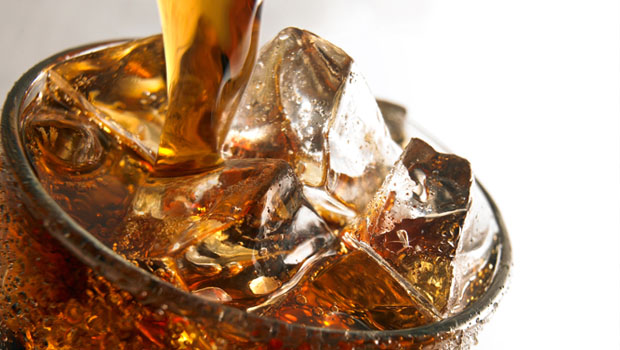Can Diet Soda Make You Consume More Calories?

In this information age, it is harder than ever to know what is healthy and what is not. Scientific findings go back and forth on the value of coffee, red wine, and even chocolate. Sugar is increasingly vilified as a cause of obesity and other health problems, but artificial sweeteners – specifically designed to allow us to enjoy our sweets without all the calories that come with sugar – have recently come in for heavy criticism from scientists, as well.
One thing that many practitioners of health and nutrition have agreed on for quite some time is that regular sodas, which are very high in sugar, should not be part of the diet of anyone who wants to maintain a healthy weight. Whether it is useful, though, to replace these sugary drinks with diet sodas is increasingly a topic of debate.
Many studies have been conducted recently comparing the effects of artificially sweetened beverages (including diet sodas) and sugar-sweetened beverages (including regular sodas). In an opinion piece in the journal Trends in Endocrinology and Metabolism, Dr. Susan Swithers of Purdue University cites several studies that indicate that diet sodas and regular sodas may have similar effects on the body. She also cites studies that go further to suggest that drinking diet soda may even be more detrimental to the goal of maintaining a healthy weight than drinking regular soda.
Recently, there have been several studies of both humans and lab animals which have shown a correlation between diet soda consumption and weight gain and other negative long-term health effects. In the lab animal studies, mice and rats who were fed a diet containing artificial sweeteners gained more weight than those fed a diet containing sucrose or glucose. The researchers also were able to see that the mice and rats that were fed the artificial sweeteners showed altered physiological responses, including higher blood sugar and a decrease in GLP-1. (GLP-1 is a glucagon-like peptide which is thought to regulate blood glucose, have protective effects on the cardiovascular system, and contribute to feelings of fullness.)
As with all dietary studies, it’s harder to prove and document the exact same altered physiological responses to artificial sweeteners with humans as with mice and rats. Aside from the obvious differences between the two types of test subjects, it’s much more difficult to control human diet during the course of a study or over a lifetime to make the same concrete links. However, the fact that the same correlation between diet soda and weight gain has been observed in people suggests that it is likely that artificial sweeteners have the same effect on people as on rats. Based on the results of these studies, Dr. Swithers theorizes that drinking diet soda could have several negative consequences, including the counterproductive effects of making weight loss more difficult or even causing weight gain.
How could a drink with few or zero calories have such an outsized effect? This is what the research suggests: Foods that taste sweet because they naturally contain sugar are high in calories, and the sweet taste sends a signal to our bodies to get ready to process those calories and to expect the energy they provide. According to Dr. Swithers, our bodies learn to associate sweetness with calories and energy through the first food we ever have – milk. Artificial sweeteners do not contain calories, so the message sent by the sweetness is not followed by the calories our bodies expect with the taste. When we regularly consume foods or beverages that taste sweet but do not deliver calories, we weaken that association, and our bodies start to lose their natural training on how to use the energy that comes from the sugar that is part of our diets. The signal that sweetness sends starts to become meaningless.
The more this happens, the less the body knows how to handle the calories that come from other foods that contain sugar, including healthy foods like fresh fruit. It’s possible that this could make the body use energy less efficiently and even have a hard time knowing when it’s time to stop eating.
“Even if people manage to maintain a healthy weight with these products, they may still be undermining other metabolic processes,” Dr. Swithers says in an interview with Type 2 Nation.
This means that consuming artificially sweetened foods and drinks like diet soda could actually make the negative effects of sugar on the body even worse because the body no longer knows how to handle them effectively. In the long run, these negative effects include increased risk for heart disease, hypertension, and stroke.
It should be noted that diet sodas still have their supporters in the scientific community. Diet soda is so named because it is intended to help people lose weight when substituted for regular soda. According to Dr. Barry Popkin, a nutrition professor at the University of North Carolina, there are many studies that support the claim that that’s exactly what it does.
“If they eat a healthy diet, diet soda helps people lose weight. The science is very simple. It cuts calories. If you eat a healthy diet and you add diet soda to that, you cut more calories,” Dr. Popkin says.
The American Beverage Association has long advocated for the consumption of diet sodas for people trying to lose weight or maintain a healthy weight. Soft-drink makers have been doubling down on that position in recent years amidst growing criticism of soda’s role in the obesity epidemic. The association issued the following statement in response to Dr. Swithers’ research: “This is an opinion piece not a scientific study (sic). Low-calorie sweeteners are some of the most studied and reviewed ingredients in the food supply today. They are safe and an effective tool in weight loss and weight management, according to decades of scientific research and regulatory agencies around the globe.”
Even the American Diabetes Association says that diet sodas can be a useful substitute for regular soda for people trying to lose weight and manage blood glucose. They do not recommend it as a tool for weight loss, but they do recommend choosing a zero-calorie beverage over a regular-calorie drink because diet drinks do not raise blood glucose levels. In general, they recommend cutting down on sweetened beverages as much as possible, but if you must drink soda, they say that diet soda is a better option.
The results of Dr. Swithers’ research do not directly contradict these ideas about how diet sodas could be useful for people trying to cut calories or manage blood glucose. Even Dr. Swithers says there are situations where artificial sweeteners may be useful to moderate food intake. The problem, according to her research, is in how our bodies’ natural responses to sugar can be thrown off by regular consumption of artificial sweeteners. She recommends that people with diabetes should be just as careful with artificial sweeteners as with sugar. Both added sugar and added artificial sweeteners should be kept to a minimum and considered a treat, rather than a regular part of the diet.
“It used to be that sodas were occasional treats. If people think of diet sodas not as something that’s free and has no negative effects, but as a treat, that might be okay,” she says. “The big message is that there’s no reason to be drinking sweetened beverages every single day.”





